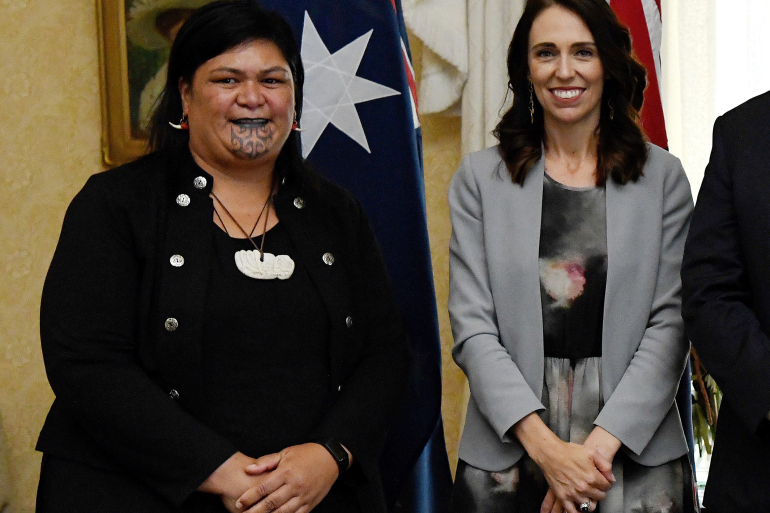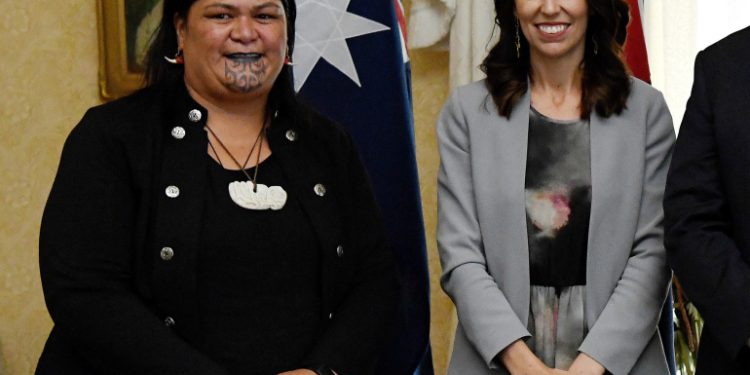New Zealand appointed its first Indigenous female foreign minister Monday to represent what’s shaping up to be one of the most diverse parliaments in the world.

New Zealand’s Newly elected first indigenous foreign female foreign Minister Nanaia Mahuta
Nanaia Mahuta, who is Māori, the Indigenous people of New Zealand, four years ago also became the country’s first female member of parliament to wear a moko kauae, a traditional tattoo on her chin. The country’s previous foreign minister, Winston Peters, is also Māori.
The small-town takeout store worker who won over New Zealand — and the world
“I’m privileged to be able to lead the conversation in the foreign space,” Mahuta said, according to national broadcaster Radio New Zealand.
Prime Minister Jacinda Ardern’s center-left Labour Party was reelected in a landslide last month, winning 49.1% of the vote according to preliminary results. Taking 64 of the 120 seats, her party was the first to win a majority since the country’s current political system was introduced in 1996.
Ardern’s incoming parliament looks set to be one of the most diverse in the world. Almost half of the country’s lawmakers will be women — significantly higher than the global average of 25%.
Around 10% of the incoming parliament are openly LGBTQ — higher than the previous title holder, the United Kingdom, where about 7% of the members of the House of Commons are openly gay, according to a national broadcaster Television New Zealand. New Zealand’s new deputy Prime Minister Grant Robertson is also gay.
“This is a cabinet and an executive that is based on merit that also happen to be incredibly diverse and I am proud of that,” Ardern said Monday as she announced her cabinet.
“They reflect the New Zealand that elected them,” she added.
Who is Nanaia Mahuta?
Mahuta was first elected to parliament in 1996, and has previously held a number of portfolios, including the minister of local government and Māori development.
She is related to the late Māori queen, Te Arikinui Te Atairangikaahu, and the current Māori monarch, Kingi Tuheitia, according to RNZ. The Kīngitanga, or Māori King movement, dates back more than 160 years and is a significant political presence in New Zealand.
In 2016, Mahuta took part in a traditional moko — or Māori tattooing design — ceremony, and became the first woman to wear a moko kauae to parliament.

Moko are hugely symbolic and contain information about a person’s ancestry, history and status. There are also sacred protocols around tā moko — the act of applying a moko to a person. Historically, moko were applied with chisels but now tattoo machines are often used.















